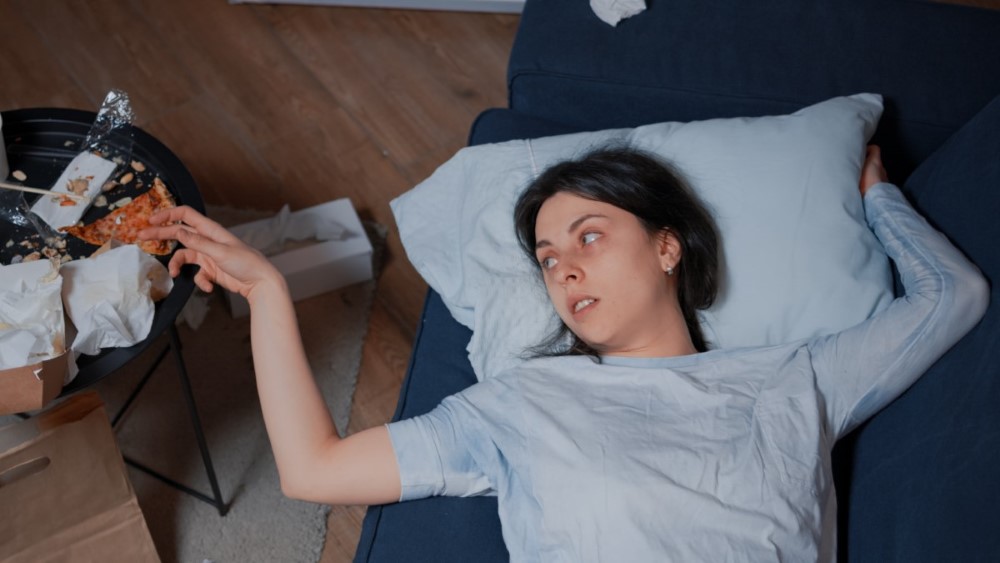Unlocking the Hidden Link: Sleep Disorders and Addiction
In the labyrinthine landscape of addiction and recovery, one crucial factor often eludes our attention: sleep. Yet, the connection between sleep disorders and addiction is a profound one, with far-reaching implications for your journey to recovery. In this exploration, we’ll unravel this often-overlooked link, offering insights and guidance on improving sleep for better recovery outcomes.
The Interplay: Sleep and Addiction
Understanding the connection begins with recognizing that sleep and addiction are intricately entwined. Substance abuse can disrupt sleep patterns, leading to insomnia, fragmented sleep, and sleep disorders. On the flip side, sleep disturbances can increase susceptibility to addiction or hinder recovery efforts. It’s a vicious cycle that demands attention.
The Impact on Recovery
For those striving to overcome addiction, quality sleep is not a mere luxury; it’s a linchpin of successful recovery. Sleep plays a pivotal role in emotional regulation, cognitive function, and decision-making. Without proper sleep, your ability to withstand cravings and make sound choices can be compromised. It’s like navigating treacherous waters without a compass.
Addressing Sleep Disorders in Recovery
Recognizing the profound impact of sleep disorders, it’s crucial to prioritize sleep hygiene in your recovery journey. This involves adopting practices that promote restful sleep, such as maintaining a consistent sleep schedule, creating a conducive sleep environment, and avoiding stimulants close to bedtime. Incorporating relaxation techniques like meditation can also be invaluable.
The Role of Healthcare Professionals
Consulting with healthcare professionals is a vital step in addressing sleep disorders during recovery. They can provide tailored guidance, and in some cases, medication or therapy to manage sleep disturbances effectively. Don’t underestimate the power of seeking professional help in optimizing your sleep.
A Holistic Approach to Recovery
In essence, recognizing the link between sleep disorders and addiction is an essential facet of a holistic approach to recovery. It’s a reminder that your well-being is a mosaic of interconnected elements, and sleep is a cornerstone. By prioritizing good sleep hygiene and seeking professional guidance when needed, you empower yourself to navigate the intricate terrain of addiction and recovery more effectively.
The Link Between Sleep and Substance Use
In the intricate web of addiction and recovery, sleep plays a pivotal role. Research underscores a clear relationship: sleep deprivation and erratic sleep patterns can set the stage for substance use disorders. It’s a vicious cycle where one feeds into the other. When sleep is compromised, the brain’s reward system is affected, increasing the vulnerability to addiction. Conversely, addiction disrupts sleep, perpetuating the cycle.
Coping Strategies for Restorative Sleep
Amidst this nexus, it’s vital to adopt coping mechanisms that prioritize healthy sleep. Exercise, under the guidance of a healthcare provider, can be a potent ally. It not only tires the body but also promotes better sleep later. Eliminating or reducing caffeine intake is another effective step, as caffeine can disrupt sleep patterns.
Moreover, relaxation techniques should not be underestimated. Practices like imagery, meditation, hypnosis, and distraction have been shown to improve sleep quality. These strategies can serve as valuable tools in breaking the sleep-deprivation-substance-use cycle, aligning with our exploration of the connection between sleep disorders and addiction.
The Prevalence of Sleep Disorders in Addiction
Recent studies reveal that a significant portion of individuals grappling with addiction also struggle with sleep disorders. Approximately 50-70% of people in addiction treatment programs report experiencing chronic sleep problems, highlighting the widespread nature of this issue.
Sleep Deprivation and Relapse Rates
Sleep deprivation can exacerbate the risk of relapse among individuals in recovery. Research indicates that those who suffer from insomnia during early recovery are more likely to relapse within the first six months, with relapse rates as high as 72%.
The Impact of Substance Type on Sleep
The type of substance abused can influence the severity of sleep disorders. For example, individuals addicted to stimulants like cocaine or amphetamines often face more profound sleep disturbances than those addicted to other substances. This insight underscores the need for tailored approaches to address sleep issues in recovery.
Improving Sleep: The Role of Treatment
Evidence suggests that integrating sleep-focused interventions into addiction treatment programs can yield positive results. Studies show that individuals who receive treatment that specifically addresses sleep disorders experience improved abstinence rates and overall well-being.
The Importance of Comprehensive Care
Comprehensive care that includes sleep management is crucial for individuals seeking recovery from addiction. Research underscores that treating sleep disorders in tandem with addiction significantly enhances the chances of sustained recovery, underscoring the need to unravel the link between sleep disorders and addiction for better recovery outcomes.
The statistics presented in this article regarding the relationship between sleep disorders and addiction are rooted in meticulous research and expert insights. These data points draw from a wealth of studies that have explored the profound interplay between sleep and addiction, shedding light on a critical yet often-overlooked aspect of recovery. The goal is to provide you with accurate, evidence-based information that can empower your journey towards better sleep and, ultimately, more successful recovery. Your understanding of this intricate link is crucial, and I invite you to engage further with the content, ask questions, and explore how these insights can positively impact your path to recovery and well-being. Together, we can navigate this complex terrain with greater knowledge and resilience.




